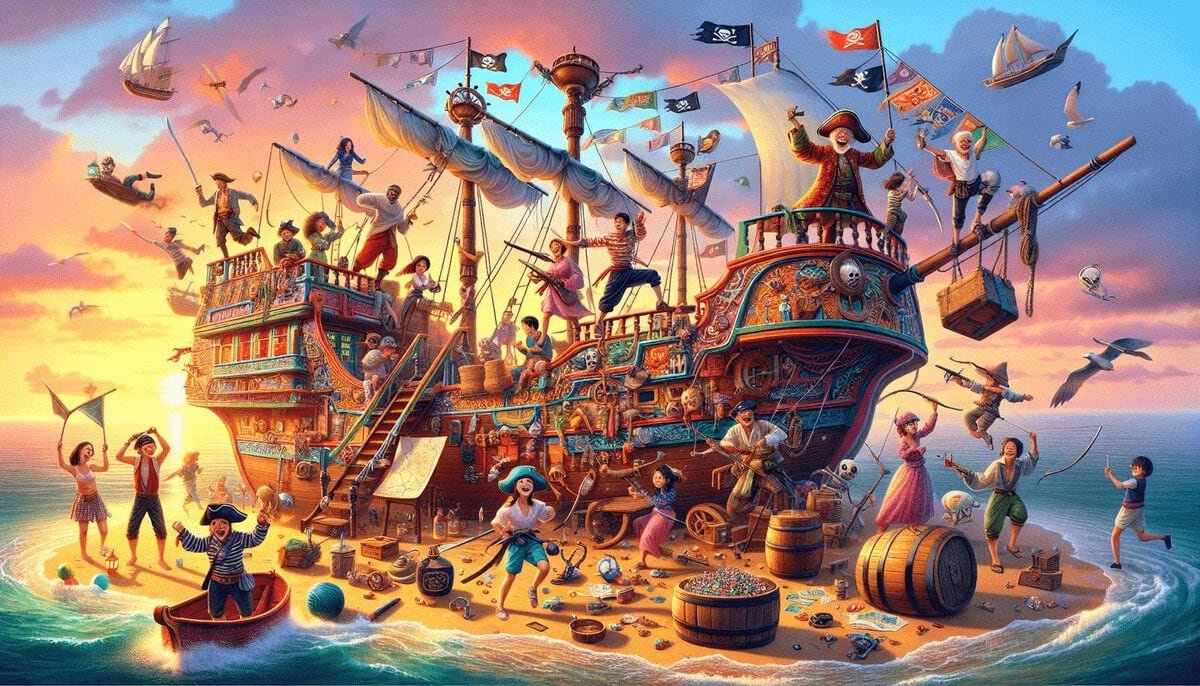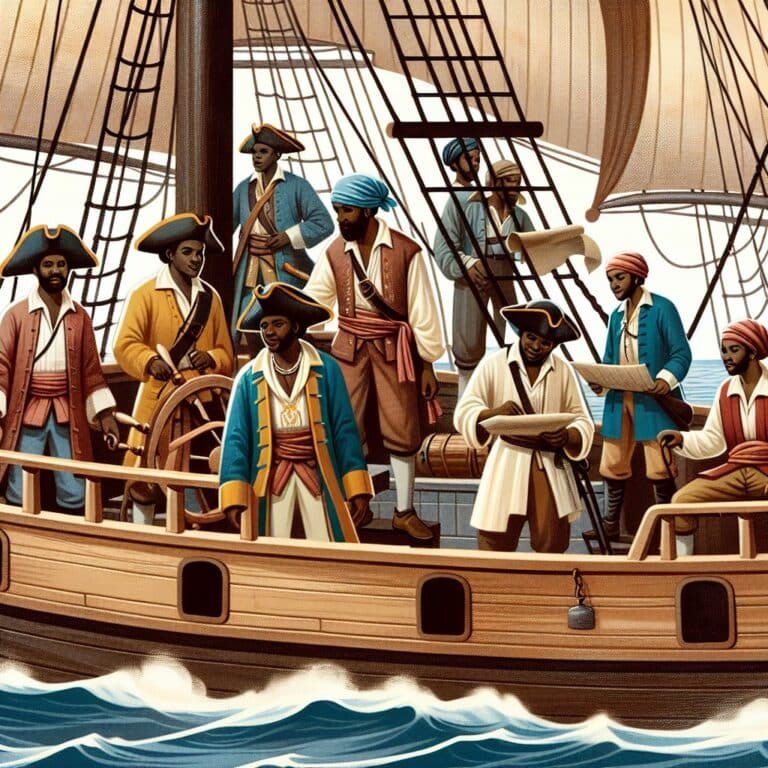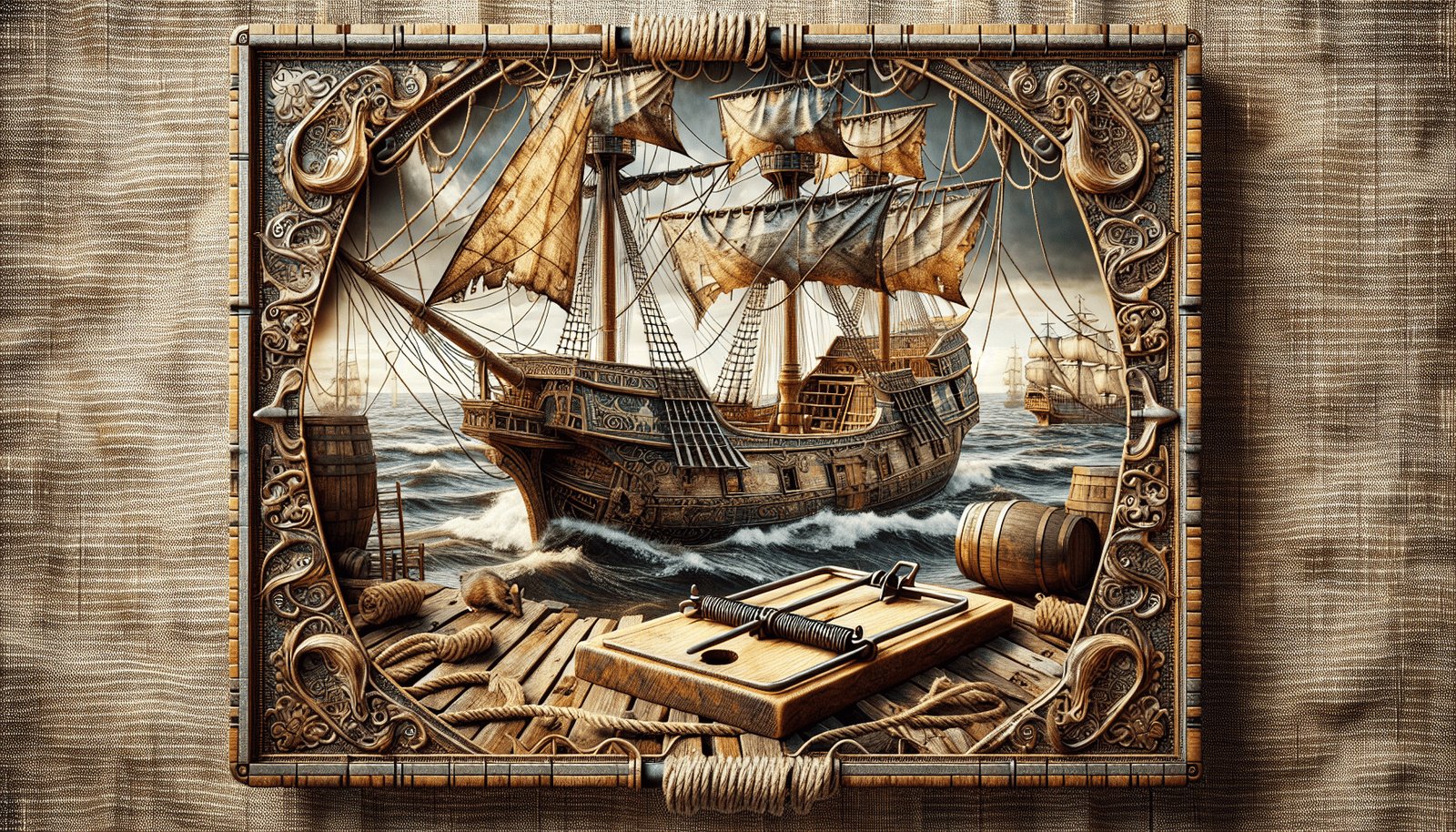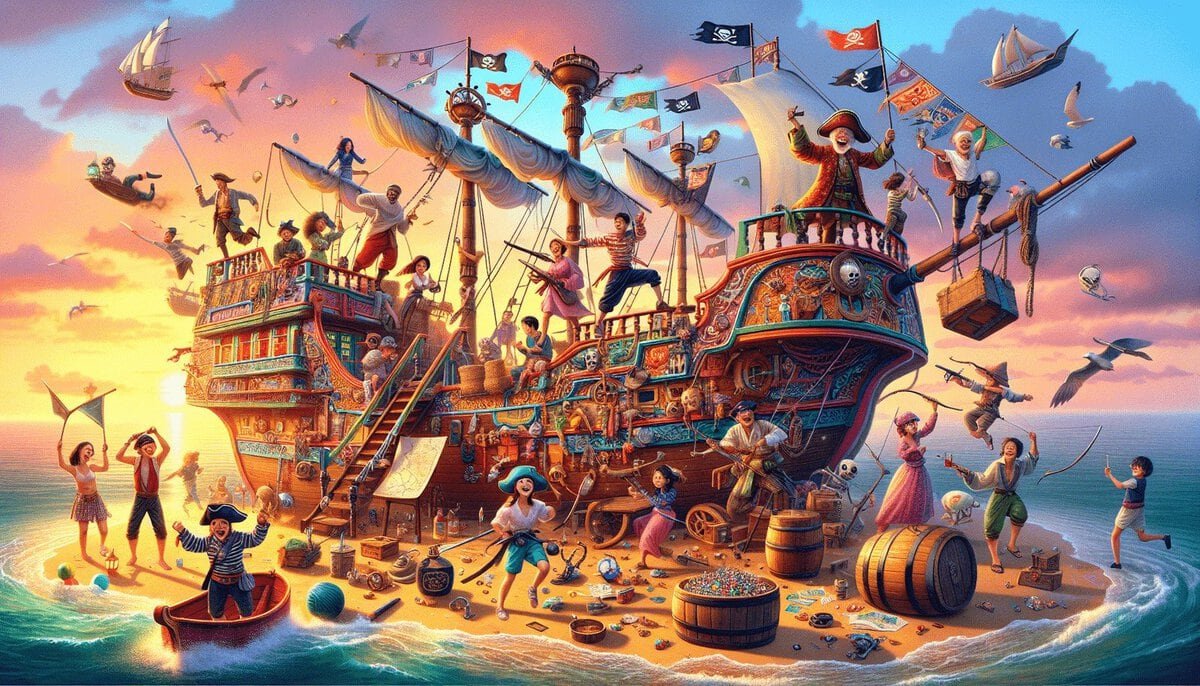## Life Amidst Outcasts: A Look at Pirate Communities During the Golden Age
The Golden Age of Piracy, spanning roughly from the 1650s to the 1730s, was a period marked not only by swashbuckling adventures but also by the fascinating social dynamics of pirate communities. While romanticized portrayals often focus on buried treasure and sword fights, the reality was a complex mix of hardship, necessity, and a unique social structure that embraced the marginalized and outcast.
This article delves into the everyday life of pirates, exploring the composition of these communities and shedding light on the often-overlooked human stories behind the legends.
### Pirate Communities: Far from Hollywood’s Glamour
Contrary to popular fictional depictions, pirate existence was far from glamorous. Life aboard a pirate ship was harsh, characterized by cramped quarters, unsanitary conditions, and limited resources. Food supplies were often meager, leading to periods of malnutrition. Disease, like scurvy, was rampant due to poor hygiene and vitamin deficiencies. Death, either from illness, injury, or execution, was a constant companion.
The harsh realities of piracy attracted a diverse and often marginalized population.
* Former Soldiers and Sailors: Deserters from the navies of various European powers seeking greater autonomy and plunder.
* Refugees and Outcasts: Individuals fleeing persecution, poverty, or societal disapproval, finding a haven in the outlaw world.
* Runaways and Debtors: Young men and women seeking escape from restrictive social norms or financial burdens.
* Criminals and Social Deviants: Individuals with a predilection for violence or illicit activities, finding opportunity on the open seas.
### A Unique Social Structure
Despite the unsavory nature of their pursuits, pirate communities often developed surprisingly complex social structures governed by codes of conduct known as Articles of Agreement.
These Agreements outlined rules for sharing spoils, resolving disputes, electing captains, and punishing transgressions. In many cases, pirates chose their captains democratically, reflecting a degree of equality and self-governance uncommon in other societies of the time.
Life aboard a pirate ship involved a hierarchy, with the captain wielding considerable authority, followed by senior officers and trusted crew members. However, the Articles often emphasized fairness and shared responsibility, ensuring that every pirate had a voice and a share in the plunder.
### Duality in Every Life: Glory and Despair
Despite the captivating allure of adventure and freedom, life as a pirate was not without its hardships and complexities. Daily struggles with sickness, exposure, and the constant threat of capture weighed heavily on their minds. Furthermore, the violent nature of their profession often led to moral dilemmas and internal conflict.
The Golden Age of Piracy remains a fascinating period of history, offering a glimpse into the lives of individuals who defied societal norms and carved their own path, regardless of the consequences. Through exploring these complex communities, we gain a richer understanding of the motivations, struggles, and ultimately, the human experiences that shaped this unique era.










